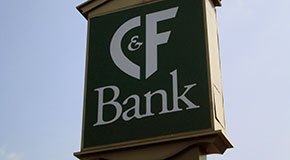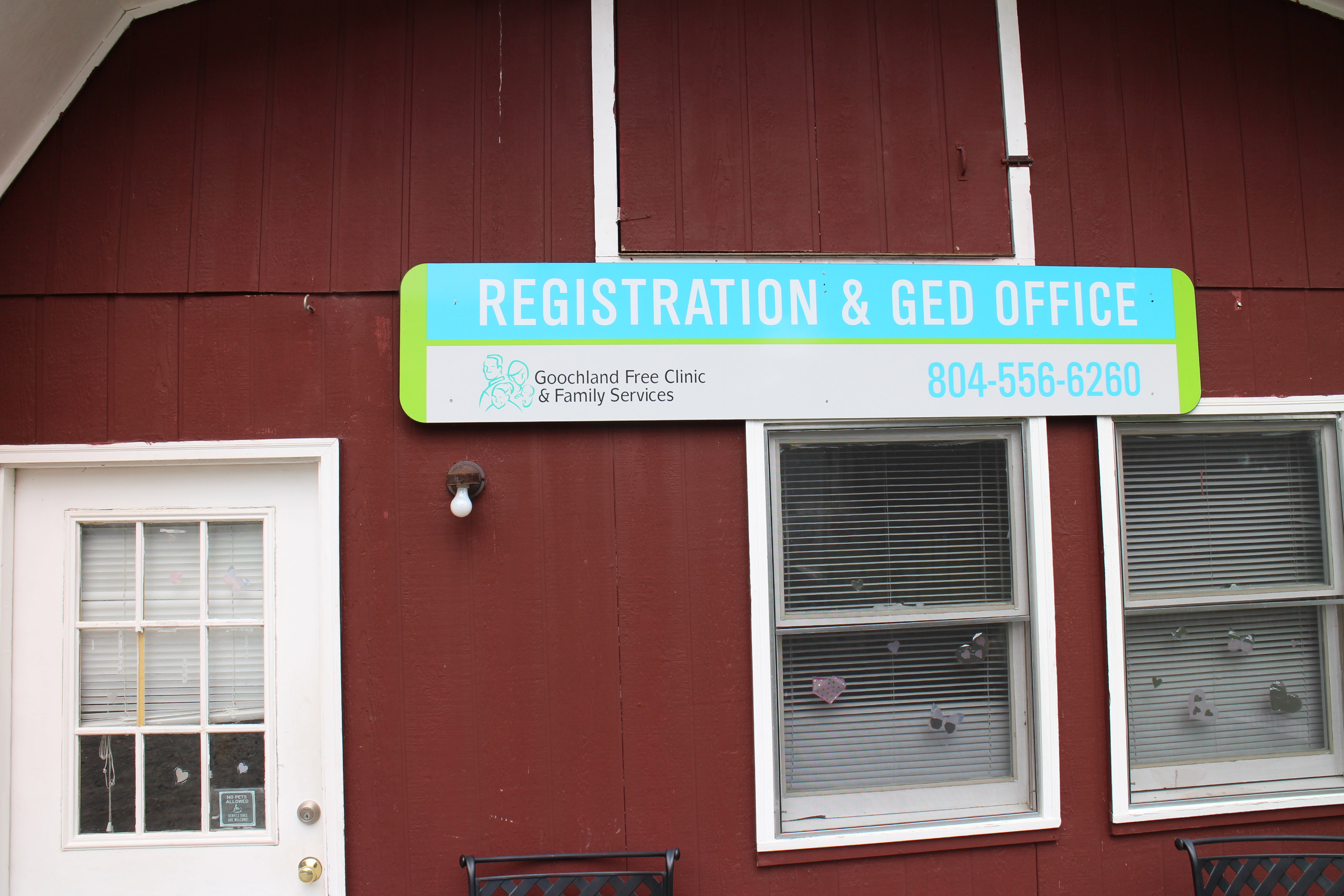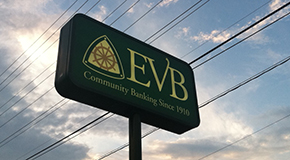For the local banking scene, 2013 was a year of big mergers, capital raises, layoffs and more institutions shaking loose from the effects of the recession.
 Perhaps the biggest banking news of the year came in June, when Richmond-based Union First Market Bank announced it would acquire StellarOne Bank of Christiansburg. The $445 million acquisition will create the largest community bank in the state, with assets of more than $7 billion.
Perhaps the biggest banking news of the year came in June, when Richmond-based Union First Market Bank announced it would acquire StellarOne Bank of Christiansburg. The $445 million acquisition will create the largest community bank in the state, with assets of more than $7 billion.
The deal has resulted in a class action lawsuit brought by a StellarOne shareholder.
The two banks announced that about a dozen branches across the state would be shuttered after the deal closes, which is expected in early January.
 Not be outdone by Union First and StellarOne, locally based C&F Bank announced a deal of its own to acquire Powhatan-based Central Virginia Bank.
Not be outdone by Union First and StellarOne, locally based C&F Bank announced a deal of its own to acquire Powhatan-based Central Virginia Bank.
The West Point-based bank paid $855,000 in cash, or $0.32 per share, for the long-struggling CVB. The deal closed Oct. 1.
C&F also scored a big addition to its executive roster during 2013 by picking up Gail Letts, who had been president and chief executive of SunTrust Bank’s Central Virginia operations. Letts was named Richmond regional president of C&F Bank in April.
 National banks with large operations in Richmond laid off hundreds of employees amid restructuring and cost cutting. Capital One had at least two rounds of layoffs at its West Creek campus during 2013: The first cut 16 employees from its branding department in June; an announcement of 200 more cuts came in October.
National banks with large operations in Richmond laid off hundreds of employees amid restructuring and cost cutting. Capital One had at least two rounds of layoffs at its West Creek campus during 2013: The first cut 16 employees from its branding department in June; an announcement of 200 more cuts came in October.
Over in northern Henrico, Bank of America in September laid off about 40 local workers at its massive mortgage operations center on Villa Park Drive.
While those banks shed employees, several locally based community banks shed some regulatory constraints.
 EVB and its parent company, Eastern Virginia Bankshares, shook loose from a two-year-old written agreement with state and federal regulators. It was the second local bank to work its way out of a written agreement since the recession. That followed a $50 million capital raise completed in June.
EVB and its parent company, Eastern Virginia Bankshares, shook loose from a two-year-old written agreement with state and federal regulators. It was the second local bank to work its way out of a written agreement since the recession. That followed a $50 million capital raise completed in June.
Quickly following suit, Midlothian-based Bank of Virginia was released from a restrictive written regulatory agreement that had lasted more than three years.
EVB further ditched its government baggage when shares of its preferred stock were sold at auction by the U.S. Treasury to an unknown buyer as part of a winding-down process of the TARP Capital Purchase Program.
A similar auction sold the TARP shares of Midlothian-based Village Bank at a steep discount in November.
That was about a month before Village closed on a $1.68 million capital raise fueled by its top executives and board of directors.
 Essex Bank and its parent company continued to buy their way out of TARP, making two large payments during the year.
Essex Bank and its parent company continued to buy their way out of TARP, making two large payments during the year.
Essex also kept busy with deals to unload four branches and a pile of deposits in Georgia and to acquire a branch in Annapolis, Md.
Out-of-town banks continued to flock to the Richmond market to set up shop, although with less frequency than in 2012. George Mason Mortgage, the mortgage arm of McLean-based Cardinal Bank, opened its first Richmond office, adding another large Virginia banking competitor to the market and luring away a veteran local loan officer.
Solidifying its presence here, First Tennessee Bank of Memphis took steps to create a full-fledged branch at its West End office.
Correction: A previous version of this story incorrectly stated that EVB was the first local bank to be released from a written regulatory agreement. It was the second, following Essex Bank in December 2012.
For the local banking scene, 2013 was a year of big mergers, capital raises, layoffs and more institutions shaking loose from the effects of the recession.
 Perhaps the biggest banking news of the year came in June, when Richmond-based Union First Market Bank announced it would acquire StellarOne Bank of Christiansburg. The $445 million acquisition will create the largest community bank in the state, with assets of more than $7 billion.
Perhaps the biggest banking news of the year came in June, when Richmond-based Union First Market Bank announced it would acquire StellarOne Bank of Christiansburg. The $445 million acquisition will create the largest community bank in the state, with assets of more than $7 billion.
The deal has resulted in a class action lawsuit brought by a StellarOne shareholder.
The two banks announced that about a dozen branches across the state would be shuttered after the deal closes, which is expected in early January.
 Not be outdone by Union First and StellarOne, locally based C&F Bank announced a deal of its own to acquire Powhatan-based Central Virginia Bank.
Not be outdone by Union First and StellarOne, locally based C&F Bank announced a deal of its own to acquire Powhatan-based Central Virginia Bank.
The West Point-based bank paid $855,000 in cash, or $0.32 per share, for the long-struggling CVB. The deal closed Oct. 1.
C&F also scored a big addition to its executive roster during 2013 by picking up Gail Letts, who had been president and chief executive of SunTrust Bank’s Central Virginia operations. Letts was named Richmond regional president of C&F Bank in April.
 National banks with large operations in Richmond laid off hundreds of employees amid restructuring and cost cutting. Capital One had at least two rounds of layoffs at its West Creek campus during 2013: The first cut 16 employees from its branding department in June; an announcement of 200 more cuts came in October.
National banks with large operations in Richmond laid off hundreds of employees amid restructuring and cost cutting. Capital One had at least two rounds of layoffs at its West Creek campus during 2013: The first cut 16 employees from its branding department in June; an announcement of 200 more cuts came in October.
Over in northern Henrico, Bank of America in September laid off about 40 local workers at its massive mortgage operations center on Villa Park Drive.
While those banks shed employees, several locally based community banks shed some regulatory constraints.
 EVB and its parent company, Eastern Virginia Bankshares, shook loose from a two-year-old written agreement with state and federal regulators. It was the second local bank to work its way out of a written agreement since the recession. That followed a $50 million capital raise completed in June.
EVB and its parent company, Eastern Virginia Bankshares, shook loose from a two-year-old written agreement with state and federal regulators. It was the second local bank to work its way out of a written agreement since the recession. That followed a $50 million capital raise completed in June.
Quickly following suit, Midlothian-based Bank of Virginia was released from a restrictive written regulatory agreement that had lasted more than three years.
EVB further ditched its government baggage when shares of its preferred stock were sold at auction by the U.S. Treasury to an unknown buyer as part of a winding-down process of the TARP Capital Purchase Program.
A similar auction sold the TARP shares of Midlothian-based Village Bank at a steep discount in November.
That was about a month before Village closed on a $1.68 million capital raise fueled by its top executives and board of directors.
 Essex Bank and its parent company continued to buy their way out of TARP, making two large payments during the year.
Essex Bank and its parent company continued to buy their way out of TARP, making two large payments during the year.
Essex also kept busy with deals to unload four branches and a pile of deposits in Georgia and to acquire a branch in Annapolis, Md.
Out-of-town banks continued to flock to the Richmond market to set up shop, although with less frequency than in 2012. George Mason Mortgage, the mortgage arm of McLean-based Cardinal Bank, opened its first Richmond office, adding another large Virginia banking competitor to the market and luring away a veteran local loan officer.
Solidifying its presence here, First Tennessee Bank of Memphis took steps to create a full-fledged branch at its West End office.
Correction: A previous version of this story incorrectly stated that EVB was the first local bank to be released from a written regulatory agreement. It was the second, following Essex Bank in December 2012.